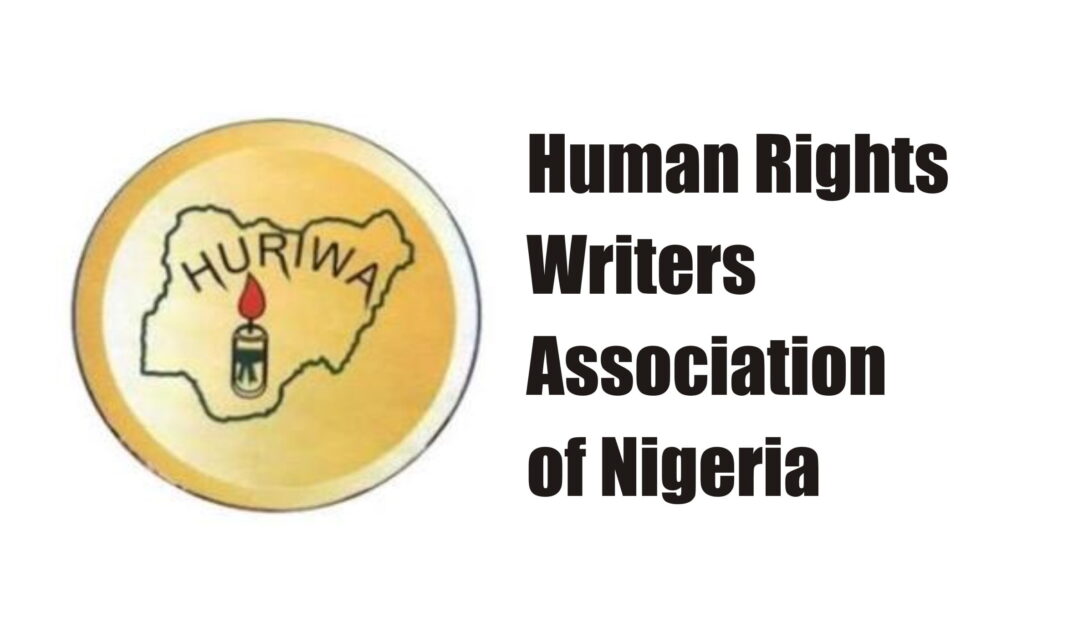The Human Rights Writers Association of Nigeria (HURIWA) has issued a scathing response to President Bola Ahmed Tinubu’s condemnation of the recent suicide bomb blast in Borno State. The attack, which reportedly claimed the lives of 18 individuals, was described by the President as a desperate act of terror. However, HURIWA asserted that the government’s actions, particularly the release of so-called repentant Boko Haram terrorists, have contributed to the continued threat of terrorism in the region.
HURIWA recalled that in a statement released on Sunday, where presidential spokesman Ajuri Ngelale conveyed President Tinubu’s condolences to the victims’ families and the Borno State Government, the President characterized the attacks as desperate acts of terror, highlighting the success in degrading the terrorists’ capacity to launch offensives. Tinubu vowed that those responsible for the violence would face justice and reiterated his administration’s commitment to securing the nation.
HURIWA criticized the President’s response, labeling it as “presidential crocodile tears.” The organization argued that the government’s policy of releasing repentant terrorists without prosecution and stringent punitive measures is a significant factor in the persistent threat of terrorism. HURIWA contended that the notion of repentant terrorists is flawed, as Boko Haram’s ideological roots make it difficult for individuals to abandon their extremist beliefs through the current deradicalization and reintegration programs.
“According to the Chief of Defence Staff, Gen. Christopher Musa, between 2016 and 2022, 1,935 Boko Haram terrorists were released from the Bulumkutu camp in Borno State. Additionally, 1,543 repentant terrorists graduated from Mallam Sidi Camp in Gombe State. Musa also revealed that from July 2021 to May 2022, 51,828 terrorists and their family members surrendered, including 13,360 fighters. The non-kinetic approach under Operation Safe Corridor led to the surrender of over 2,000 Boko Haram members between 2016 and 2017, with 67% belonging to the Abubakar Shekau faction.
“Research indicates that deradicalizing terrorists, particularly those with extreme religious ideologies, is a complex and challenging process. Ideologies deeply rooted in religious or political beliefs are not easily abandoned. The rapid reintegration of former terrorists into communities without thorough and prolonged deradicalization can lead to recidivism, undermining national security efforts”, HURIWA condemned.
HURIWA asserted further that President Tinubu’s national security strategy has failed miserably. The organization claimed that the current administration and its service chiefs are inept and grossly incompetent. HURIWA criticized the military commanders for lacking patriotism and for their inability to effectively combat terrorism. “The government’s leniency towards terrorists is contrasted with its harsh actions in the South East, where mass killings of youths under the guise of combating IPOB (Indigenous People of Biafra) have been reported”.
HURIWA also highlighted the plight of Nnamdi Kanu, the leader of IPOB, who remains in detention as a political prisoner. The organization accused the government of double standards, noting that while repentant terrorists are released, Kanu, a prisoner of conscience, continues to be held since being captured by what HURIWA described as “the most ruthlessly corrupt and oppressive government Nigeria has ever had,” referring to the previous administration under Muhammadu Buhari.
HURIWA called on the government to adopt a more stringent approach towards terrorists, including prosecution and severe punitive measures. The organization urged President Tinubu to rethink his national security strategy and to prioritize the safety and security of all Nigerians.
While concluding that the release of terrorists without accountability is seen as a failure of the current administration to protect its citizens effectively, HURIWA underscored the need for a comprehensive and robust approach to combating terrorism, one that ensures justice for victims and prevents the resurgence of extremist threats in Nigeria.
